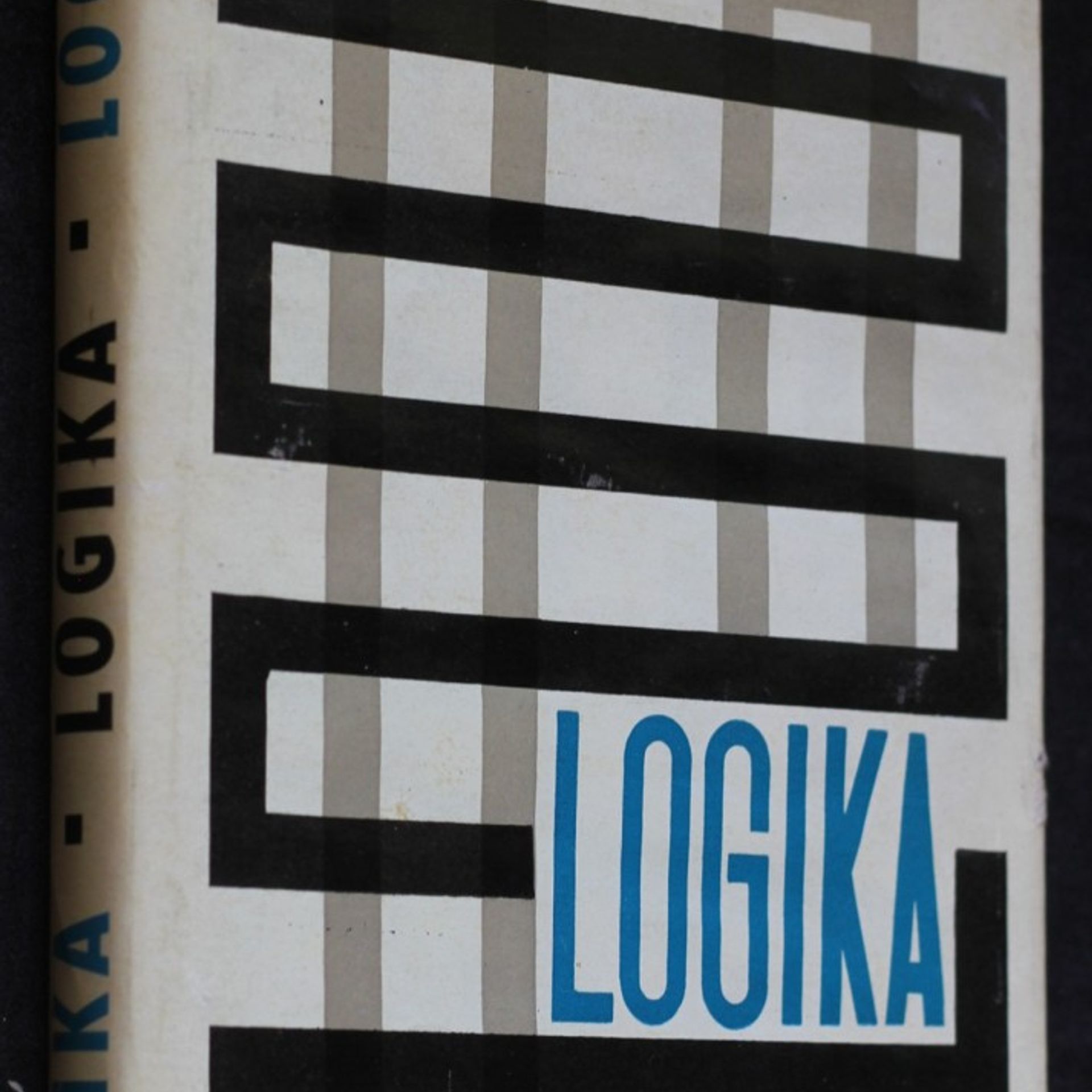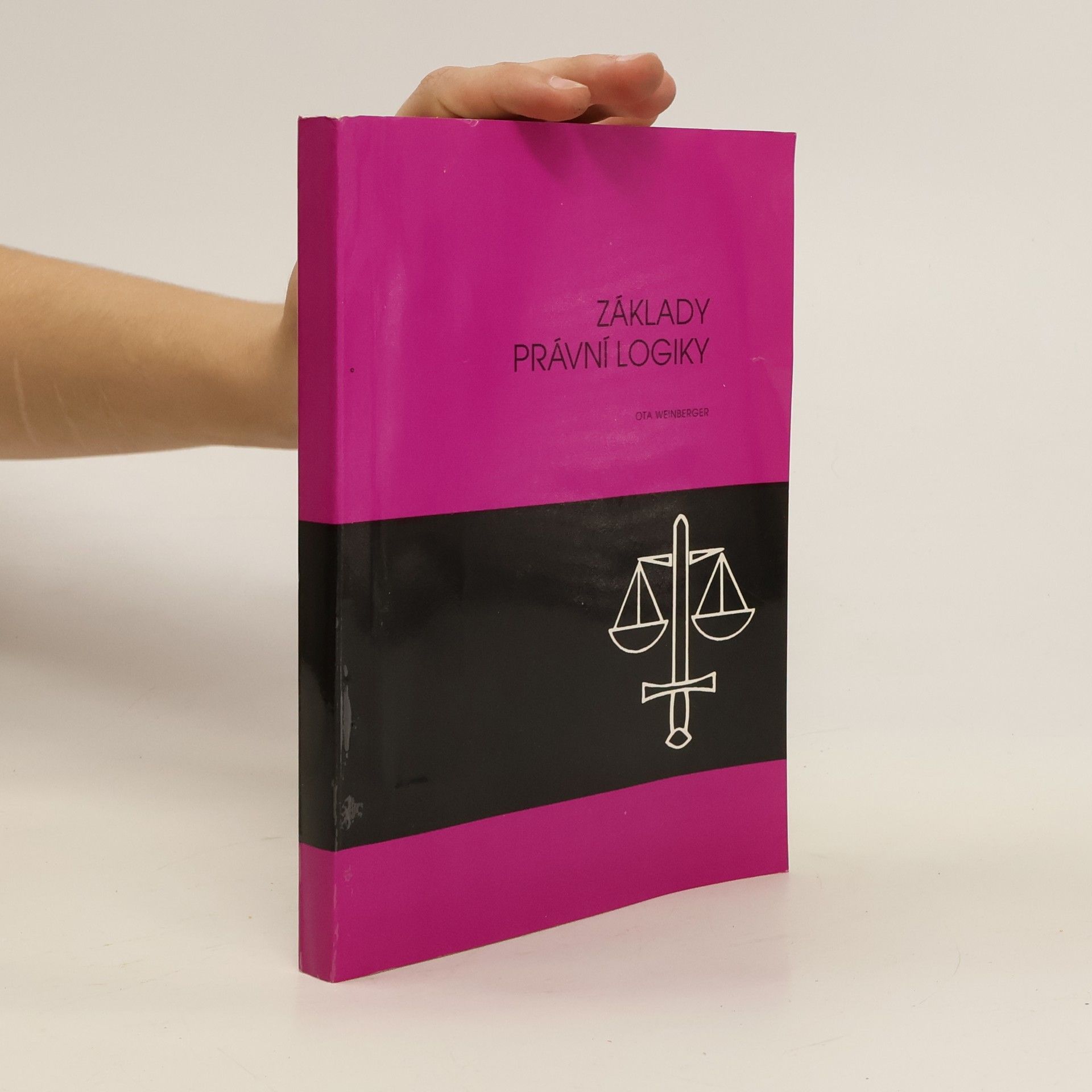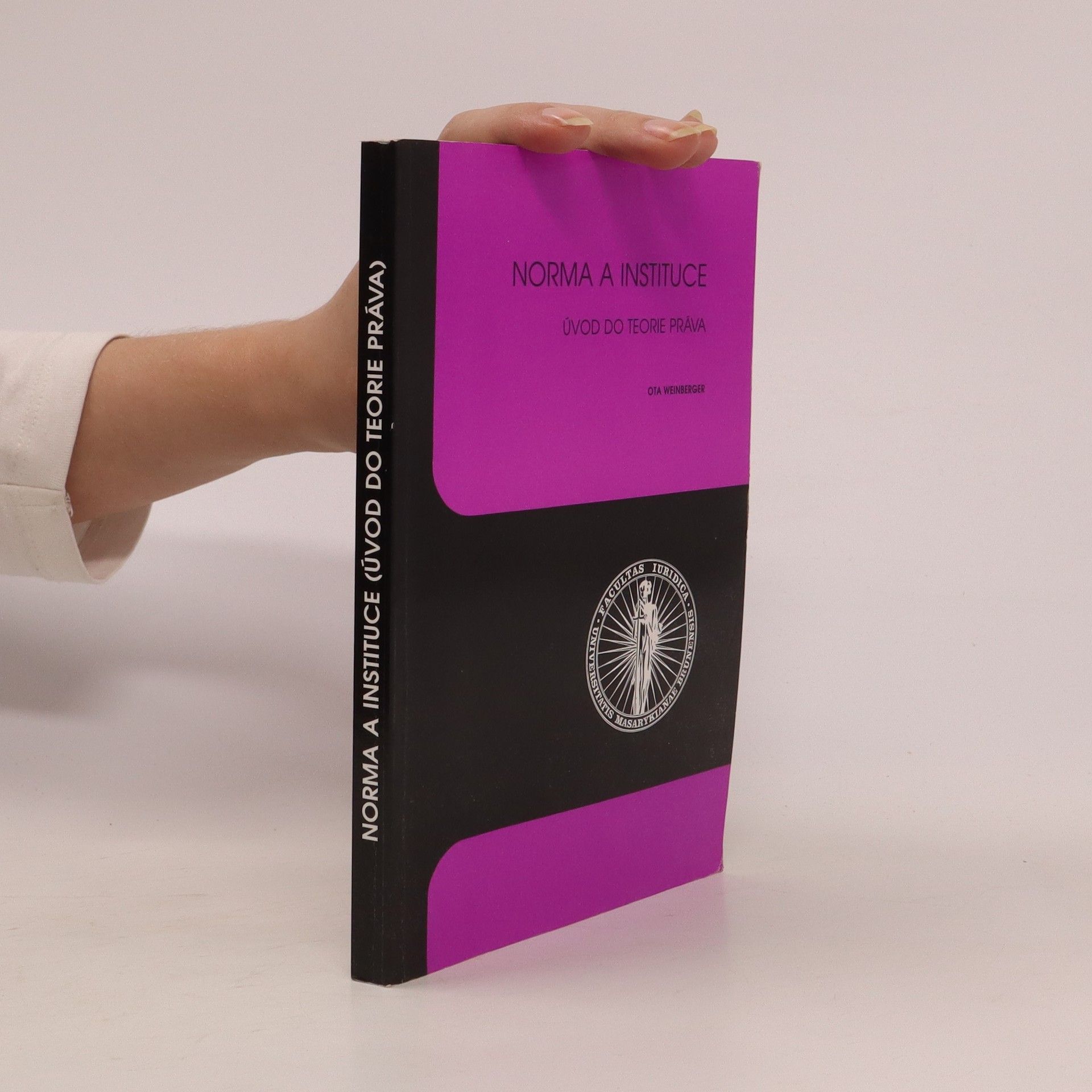Alternativní teorie jednání
- 278pages
- 10 heures de lecture







Učebnice podává přehledný, prakticky zaměřený nárys logiky výroků, logiky tříd, vztahů a funkcí i základních částí klasické logiky se zřetelem na potřeby právníků jsou zpracovány kapitoly o definici, důkazu, logice normativních vět, interpretaci textu, argumentaci v praxi aj. 1. vydání.
Učebnice podává přehledný, prakticky zaměřený nárys logiky výroků, logiky tříd, vztahů a funkcí i základních částí klasické logiky se zřetelem na potřeby právníků jsou zpracovány kapitoly o definici, důkazu, logice normativních vět, interpretaci textu, argumentaci v praxi. 3. vydání.
Publikace: Inštitucionalizmus - Nová teória konania, práva a demokracie - Ota Weinberger. „Pravidlá a reálie šachovej hry určujú rovnako určité hracie povinnosti (ktoré sa realizujú pri vstupe do hry s partnerom), ako aj možnosti hracích konaní, ale nie faktické rysy partie. Rozhodnutie o konaní závisí od rozhodnutia hráča, ktorý si vyberá z triedy možných ťahov. Je dôležité poukázať na to, že výber ťahu (hracieho programu alebo výseku programu, napr. trojťažky) je určovaný iným druhom pravidiel – strategickými šachovými pravidlami. Analogicky to platí aj pre konanie v rámci iných systémov noriem.